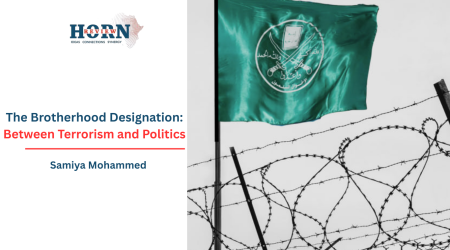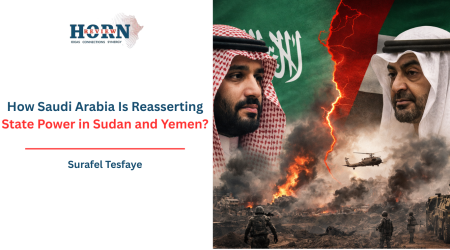
3
Apr
Europe’s Strategic Recalibration: Embracing Autonomy Amid Shifting U.S Foreign Policy
The evolving global security environment is compelling Europe to reexamine its defense strategy and funding priorities in a manner that reflects deeper political debates. Trump’s foreign policy strategy has led to a growing realization among European policymakers that traditional reliance on American military and economic support is no longer a guarantee of security.
The Trump administration’s decision to suspend military aid to Ukraine, its pledge to withdraw from European Union affairs, and its “America First” policy have unsettled transatlantic relations and sparked vigorous debates within Europe about the need for greater strategic autonomy. In addition, the leaked comments by VP JD Vance, expressing frustration about “bailing Europe out again” amid discussions of U.S. military action, amplify a growing U.S. sentiment that Europe must take greater responsibility for its security.
European leaders are now pursuing bold initiatives aimed at strengthening their defense capabilities. As reported by reputable sources such as Reuters and the Financial Times, European Commission President Ursula von der Leyen has outlined ambitious plans that could mobilize hundreds of billions of euros over the coming years. This fiscal reorientation implies a profound recalibration of European economic priorities in favor of defense.
Following the European Parliament’s proposal to expand the European Defense Industry Program (EDIP) budget from €1.5 billion to €15 billion to strengthen defense autonomy amid rising threats, Europe’s move toward a more independent defense strategy is intensifying not only through ambitious initiatives like the European Defense Fund and a revamped EDIP budget but also through immediate and pragmatic measures, such as the recent urgent advisory by the European Union urging citizens to stockpile a minimum of 72 hours’ worth of food and essential supplies amid escalating tensions with Russia. By signaling its readiness to mitigate risks of military conflict and manage sudden disruptions, the advisory sends a potent political message to external actors reflecting a strategic recalibration that seeks to align internal cohesion with a redefined role in an evolving multipolar world.
This shift is emblematic of a broader debate over Europe’s identity and its role on the global stage. Internally, the drive for strategic autonomy exposes a longstanding deep-seated differences among member states. Countries that have a robust transatlantic tie may be reluctant to abandon the decade-old security arrangements, while those with historical apprehensions about U.S. interreference, view the move as an opportunity to assert and take control of their defense policies. EU’s crossroad is as much about reconciling diverse national interests as it is about responding to potential external threats.
The implications of a more autonomous European defense posture extend well beyond internal EU politics. The traditional balance of power, dominated by the United States, is being reshaped by the rapidly evolving multipolar world structure. Efforts by the EU to bolster its military capabilities might lead to a new geopolitical landscape that redefines strategic alliances and rivalries. Rival powers, notably Russia and China, are waiting to react strategically to any reduction in the United States’ involvement and influence over NATO, possibly leading to a recalibration of global security alliances.
As European resources are increasingly directed toward domestic defense, Its engagements in African conflicts, especially in volatile regions like the Horn of Africa, might wane. Even though the EU has played a key role in African security through peacekeeping and development aid, this transformation might affect Europe’s external engagements. On the contrary, A strong European defense infrastructure could pave the way for new forms of bilateral and multilateral cooperation that might offer African nations the opportunity to negotiate balanced economic and security partnerships.
Moreover, the EU’s strategic autonomy poses a significant challenge. Existing political debates surrounding increased defense spending are intertwined with a broader issue of financial responsibility and national sovereignty. Working to balance the imperatives of enhanced defense capabilities with the realities of national debt and public skepticism over Economic expansion is a contentious issue. As European governments navigate these internal and external challenges, the long-term success of a reoriented defense policy will depend on their ability to forge consensus and manage the complex interplay of domestic politics and international pressures.
Europe’s pursuit of strategic autonomy in defense marks a transformative shift driven by a volatile global security environment and the uncertainties of Trump’s foreign policy. This reorientation, fueled by ambitious initiatives like the expanded European Defense Industry Program reflects deeper internal debates over fiscal priorities and the continent’s identity. As Europe seeks to reduce its reliance on American support, it faces the challenge of uniting diverse member states while addressing external pressures from powers like Russia and China. The success of this bold endeavor will depend on reconciling national interests, balancing economic realities, and redefining Europe’s role in an emerging multipolar world, with implications that could reshape global alliances and influence engagements far beyond its borders.
By Tsegaab Amare, Researcher,Horn Review










